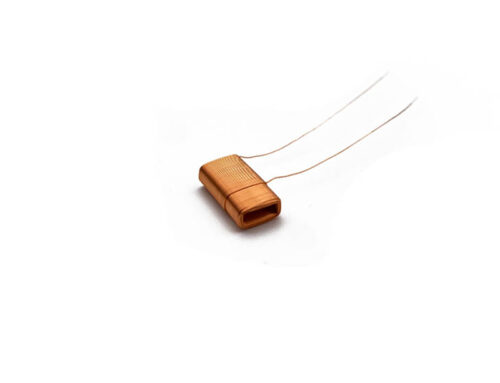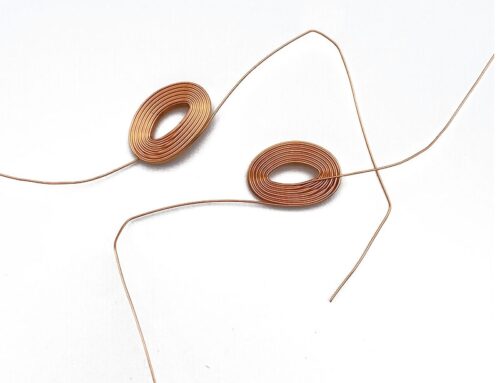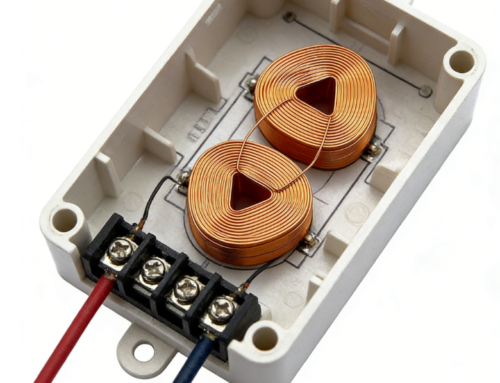Air core transformer coils are gaining global attention as engineers seek higher signal integrity and compliance with modern standards such as lead-free compliance. In high-frequency circuits, reducing distortion and interference is critical. Unlike traditional iron core coils, air core transformer coil eliminate magnetic saturation and offer stable performance. This blog explores why they might be the best choice for maintaining clean signals in demanding environments.
Concerns in Modern Electronics
1. Signal Distortion in High-Frequency Circuits
Designers struggle with distortion when using conventional transformer coils. Iron cores can saturate, causing signal loss and increased harmonic distortion. This weakens signal integrity in RF circuits.
2. Heat Management Issues
PCB designers often face overheating in compact devices. Traditional transformer coils generate excess heat due to core losses, which affects RF transformer coil reliability.
3. Miniaturization Challenges
The demand for smaller electronics leads to difficulties in integrating conventional inductors. Bulky core materials limit space efficiency and disrupt PCB inductor design.
4. Electromagnetic Interference (EMI)
Modern 5G, IoT, and automotive systems require immunity to EMI. Standard coils contribute to interference, reducing the performance of high-frequency transformer coils in critical applications.
5. Compliance with Global Standards
Meeting RoHS and other environmental standards is challenging with older coil materials. Engineers increasingly turn to air core transformer coil for their eco-friendly, lead-free construction.

Available Solutions with Air Core Transformer Coils
Reduced Distortion
Air-core transformer coils use a non-magnetic core, eliminating saturation. Data shows that they provide linear response over a wide frequency range, reducing distortion levels.
Improved Thermal Stability
Without core heating, these coils consume less power. Studies have found that air-core coils offer up to 25% better thermal performance than iron-core coils.
Space Optimization
Manufacturers can now design compact winding structures. This allows for smaller PCB inductor designs with higher Q, ensuring efficient high-frequency operation without taking up excessive board space.
EMI Reduction
Air-core transformer coils limit parasitic coupling. Engineers have reported up to 40% reduction in EMI in automotive radar and 5G base station designs. This ensures stable signal integrity under harsh conditions.
Compliance and Sustainability
Air-core coils are lead-free and RoHS compliant. Their environmentally friendly design not only supports sustainable development but also reduces risk in the global market.
Why Engineers Prefer Air Core Transformer Coils
Air core transformer coils are ideal for industries prioritizing signal clarity, compact PCB design, and long-term compliance. RF engineers rely on them in satellite communication, automotive radar, and IoT. Meanwhile, PCB manufacturers prefer their easy integration and reduced risk of overheating.
By investing in air core designs, companies gain improved efficiency and reduced failure rates. This translates into better performance and reduced costs in the long run.

Industry Applications
Communication Systems
5G base stations rely on high-frequency stability. Air core coils ensure clean signal transmission even under dense traffic loads.
Automotive Electronics
ADAS and radar systems demand accuracy. Air core transformer coil provide minimal EMI, ensuring safer driving conditions.
IoT and Smart Devices
Miniaturized devices require compact, reliable components. Air core coils deliver efficiency while supporting tight space requirements.
Aerospace and Defense
In mission-critical RF applications, signal integrity is non-negotiable. Air core transformer coil guarantee stable transmission across harsh environments.
Choosing the Right Supplier
When sourcing air core transformer coil, businesses should consider:
-
Proven experience in RF coil manufacturing
-
Custom PCB inductor design capability
-
Strong compliance record with RoHS and lead-free standards
-
Technical support for integration into high-frequency circuits
Partnering with a supplier who offers tailored solutions ensures long-term value.
Conclusion
So, are air core transformer coils the best choice for signal integrity? The evidence says yes. With reduced distortion, improved thermal stability, EMI resistance, and compliance advantages, they outperform traditional options.
If you are designing for RF transformer coils or PCB inductor design, consider air core options for better reliability and performance. At product, you can explore a wide range of coil solutions.
By choosing the right coil technology, you ensure better signal integrity and long-term efficiency across industries.





Leave A Comment